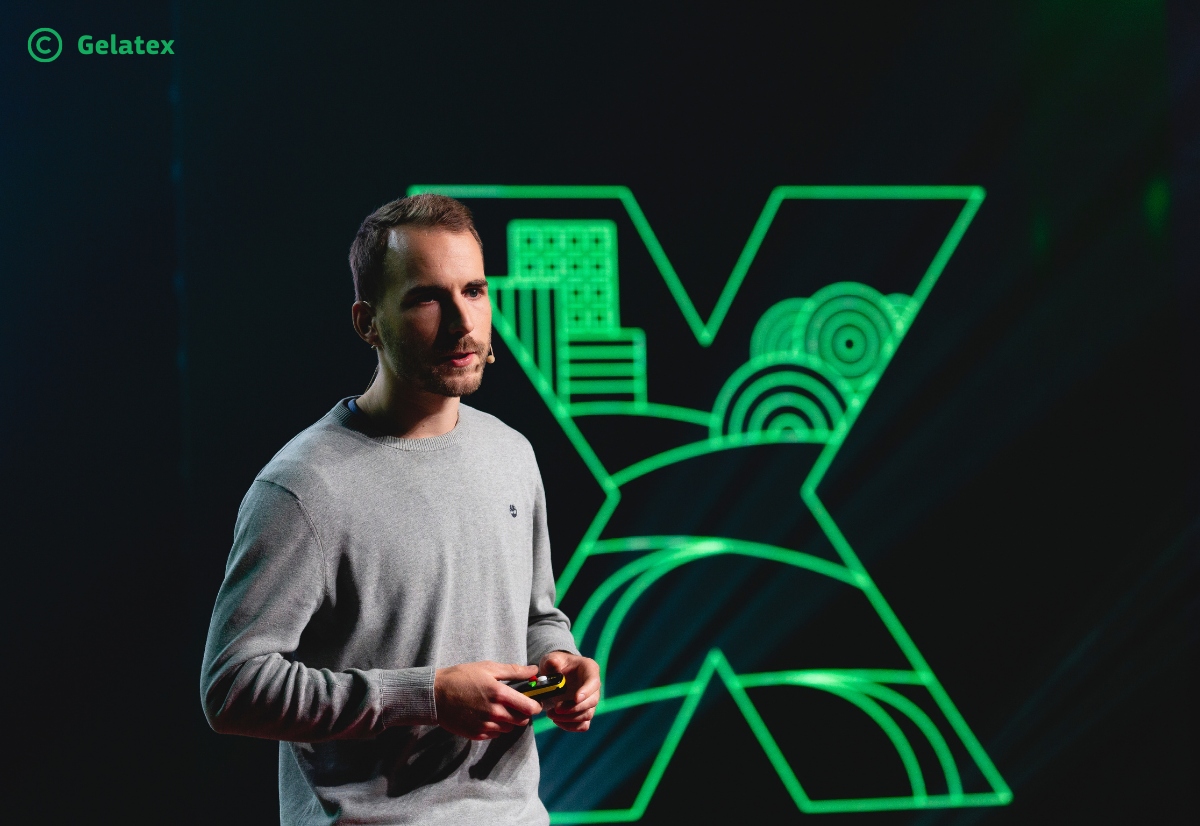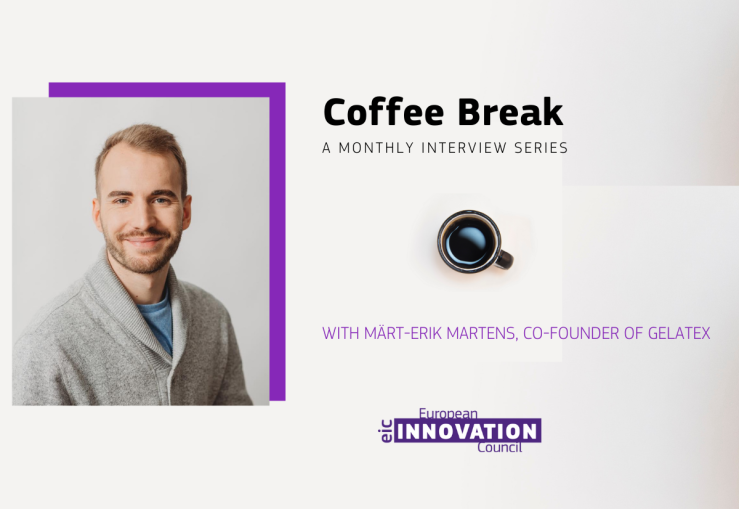Every month, during a Coffee Break, we dive into the stories of EIC innovators and get a glimpse of the persons behind the startups. Today's guest is Märt-Erik Martens, the co-founder and CEO of Estonian Gelatex. Märt-Erik is a skilled engineer, materials scientist and inventor of Gelatex proprietary process for nanofiber production. The company was founded in 2016 with the mission to provide an eco-friendly option to natural leather. This year, when the COVID-19 pandemic changed the world, the fashion industry started slowing down, and Gelatex had to find alternatives to their 'business as usual'. In a short period, the Estonian company shifted production to high-quality filter material for face masks, tissue engineering, wound care, and cultured meat. Discover their new road to success in the Coffee Break of December.
Tell us how the idea of your innovation started. Was it something that was bouncing in the back of your head for a long time?
The story of Gelatex started 4 years ago when Mari-Ann (the co-founder) and I met at the University of Tartu. I was studying and working as a material scientist on bio-based materials like gelatine. Mari-Ann contacted us because she was trying to discover who was developing leather-like textiles or eco-materials. We were playing around with these gelatine nanofibers and looking for new applications for them. Together we found the purpose for those nanofibers and the leather-like textile was one of them. We found the main problem of that industry, and we discovered that the product that we were developing could be a cure. That's where the idea started. We've been developing this material for quite a long time, we piloted this, and now we are more focused on nanofibers. During this process of creating this leather-like textile, we came up with a completely new technology to produce nanofibers.
The COVID-19 pandemic affected many companies in the fashion industry. How did your startup adapt to this new reality?
As the COVID-19 crisis affected all the project developments of our potential customers, we needed to find a new application for our materials. We started to produce filtration materials because there was a huge demand for filtration material to create masks here in Estonia, and even in all Europe. We made this novel nanofiber production technology, we managed to produce this material, and we learned that we could work with other polymers besides gelatine as well.
Now we are focusing on nanofiber materials in general, and we are targeting different markets, such as tissue engineering, cultured meat, bio-based filtration and even energy storage. We are actually in the field of nanofibers rather than fashion related materials. COVID didn't change our business completely, but it did give us a push. We thought about other applications before, but we were doing quite well in the leather textile field, and it was not making sense to switch our focus. Now that we've seen the potential of our nanofibers technology, we have noticed that it's much bigger than leather-like textiles. We have identified 10 different polymers that we can work with, not only gelatine, and the applications of our technology relay on so many industries that we don't see the point of only focusing on one. We now have many companies that can benefit from the technology that we have invented.

Can you tell us how was the initial implementation of your company and how you pushed through?
I was still doing my studies at the university, and I was not a full-time scientist. I was sometimes working for the laboratory, but my studies were my main focus. At that time, I was still trying to discover new opportunities. When we started the company, we immediately realised that we were entering in a big scientific adventure. There's a lot of scientific research that needs to be done before. In the first two years, we operated the outsource development process and different development services from the university, and over 15 scientists have been involved. During that time, I worked for another company, and only the last year both co-founders have been working full time in the company. In the beginning, we were exclusively focused on our R&D. But now that we are already developing our sales and working with costumers, the founders need to have a full-time position.
What advice can you give to people who are currently playing with the idea of starting a company and becoming potential entrepreneurs?
I advise people to do it. There's nothing like creating a company. If you have an idea, and if you know that you can do it, the only logic option is to start a company and pursuing that dream. It's the only possible way to get big things done.
What books inspired you on this journey?
The books that I read are mainly related to astrophysics. This is what interests me… I read a lot of books and papers that are published in the Magazine News Discover on Astrophysics. For the last couple of years, I haven't read any fiction books because I'm discovering other fields of science. I also like to read about quantum mechanics, but astrophysics books are my favourite. Currently, I'm reading The Quantum Universe, by Brian Cox.

DISCLAIMER: This information is provided in the interest of knowledge sharing and should not be interpreted as the official view of the European Commission, or any other organisation.

